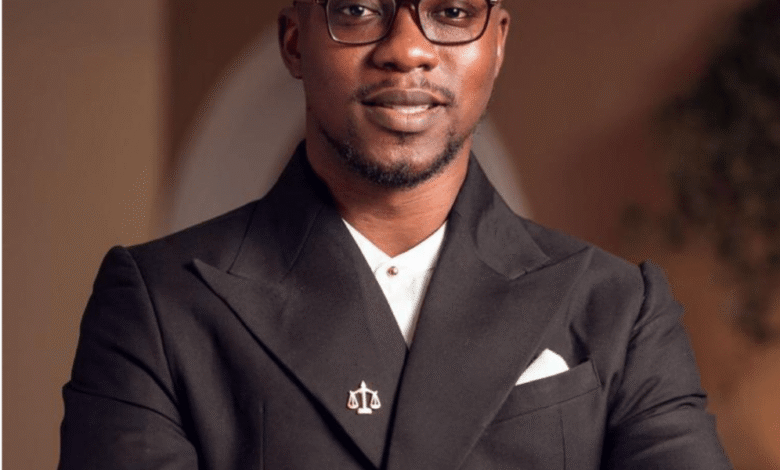Understanding Divorce in Ghanaian Law and Society

Introduction
Marriage, in both religious and cultural thought, is regarded as a sacred covenant. The familiar biblical injunction “What therefore God hath joined together, let not man put asunder” (Matthew 19:6, KJV) resonates deeply across Ghanaian churches, mosques, and family gatherings. In this verse, Jesus stresses the divine origin and indissoluble nature of marriage: that two individuals, joined by God, become “one flesh.” Within this theological framework, marriage is not merely a social arrangement but a spiritual bond, ordained to last a lifetime.
Yet beyond the sanctity of vows lies a sobering reality not all unions endure. When affection fades into hostility and companionship turns to cruelty, the law becomes a reluctant but necessary avenue for relief. While Matthew 19:6 underscores the ideal of permanence, Ghana’s legal system acknowledges that human imperfection and incompatibility can render some marriages irretrievably broken. And so, what God has not truly put together, the lawyer will put asunder.
Empirical data reveal the depth of this social transformation. The 2021 Population and Housing Census (PHC) conducted by the Ghana Statistical Service (GSS) indicates that approximately 553,065 Ghanaians have had their marriages dissolved, while 405,090 are currently separated. Of those divorced, 362,233 (65.5%) are female and 190,832 (34.5%) are male. Among separated individuals, 252,079 are female and 153,011 male. The divorce rate in Ghana now exceeds 4,000 cases annually (Census Report, 2021; Isaac Kofi Adjei, JoyOnline, 10 January 2024). These figures illuminate the changing nature of family life and the increasing role of law in resolving marital disputes.
Sociological research supports this trend. Stephanie Coontz, in her seminal work “The Origins of Modern Divorce” (2007), observes that the global rise in divorce reflects broader social changes individual autonomy, shifting gender roles, and economic independence rather than moral decline. Ghana’s experience is no different: marriage today exists at the intersection of faith, culture, and modern law.
Against this background, the Matrimonial Causes Act, 1971 (Act 367) remains the cornerstone of divorce regulation in Ghana.
While Ghanaian courts respect the sacredness of marriage, they prioritize the protection of human dignity and welfare where the marital relationship has lost its substance. Thus, what God has not truly put together where harmony, respect, and affection have long departed the law may justly put asunder.
This article therefore explores the legal and social dimensions of divorce in Ghana, examining how the courts navigate the delicate balance between moral ideals, cultural expectations, and the evolving realities of human relationships in a constitutionally secular yet deeply religious society.
The Legal Foundation: The Matrimonial Causes Act, 1971 (Act 367)
The principal legislation governing divorce in Ghana is the Matrimonial Causes Act, 1971 (Act 367). Enacted to modernize family law and harmonize customary, statutory, and religious practices, the Act marked a decisive shift away from viewing divorce as a purely moral transgression toward recognizing it as a legal remedy for broken unions. The Act reflects the evolution of Ghanaian society anchored in Christian and customary values but guided by the constitutional principle of human dignity and freedom of association.
1. The Sole Ground for Divorce: Irretrievable Breakdown of Marriage
Under Section 1(1), a petition for divorce may be presented by either party to a marriage, provided that the marriage has broken down beyond reconciliation. This is the sole legal ground for divorce in Ghana. The emphasis on irretrievable breakdown signifies that the law’s concern is not the apportionment of blame, but the viability of the marital relationship itself. It acknowledges that when love, trust, and companionship have irreversibly eroded, continued cohabitation serves no social or moral purpose.
In this sense, the Act departs from the older “fault-based” approach where one spouse had to prove the other’s wrongdoing, such as adultery or cruelty o a more realistic “breakdown” model that accommodates the complexity of modern relationships. The focus is not on punishing fault but on protecting human welfare and dignity.
2. Evidence of Breakdown: The Six Statutory Facts (Section 2)
To establish that a marriage has broken down beyond reconciliation, Section 2(1) of the Act enumerates six factual situations any one or combination of which may convince the court that the marriage has collapsed irretrievably:
- Adultery – where the respondent has committed adultery and, by reason of it, the petitioner finds it intolerable to continue cohabiting.
- Unreasonable behaviour – where the respondent has behaved in such a way that the petitioner cannot reasonably be expected to live with them.
- Desertion – where the respondent has deserted the petitioner for a continuous period of at least two years immediately preceding the petition.
- Two years’ separation with consent – where the parties have not lived as husband and wife for two years and the respondent consents to the divorce (consent not to be unreasonably withheld).
- Five years’ separation without consent – where the parties have lived apart for five years, irrespective of consent.
- Inability to reconcile differences – where, after diligent effort, the parties have been unable to reconcile.
The court, even when one or more of these facts are proven, must still be satisfied on all the evidence that the marriage has broken down beyond reconciliation. This ensures that the process remains substantive rather than mechanical preserving the court’s discretion to uphold the sanctity of marriage unless it is truly beyond repair.
3. Reconciliation as a Legal Duty (Sections 7 and 8)
The Act also introduces a mandatory reconciliation duty. Section 7(1) requires the petitioner or counsel to inform the court of all efforts made to reconcile the parties. Under Section 8(2), if the court perceives a reasonable possibility of reconciliation, it may adjourn proceedings and direct both spouses possibly with family representatives or a court-appointed conciliator—to attempt reconciliation.
This statutory emphasis on reconciliation reflects Ghanaian cultural and religious traditions that value mediation and family intervention in resolving domestic disputes. The law, therefore, balances compassion with practicality it allows separation when necessary but insists that every opportunity for peace be explored first.
4. The Two-Year Restriction and Exceptions (Section 9)
A unique safeguard under the Act is the two-year restriction rule, which prevents a spouse from filing for divorce within two years of marriage. This provision aims to protect the institution of marriage from impulsive or premature dissolutions. However, Section 9(2) allows exceptions in cases of “substantial hardship” or “depravity” for example, where the petitioner faces violence, abuse, or extreme cruelty. The court, in considering such applications, must also weigh the interests of any children and the possibility of reconciliation.
The Role of the Courts: From Reconciliation to Resolution
Divorce in Ghana is not automatic. The court must be satisfied that the marriage has broken down irretrievably and that reconciliation is impossible. Under Section 3 of Act 367, judges are even required to encourage reconciliation, either directly or through mediation, before granting a decree.
Additionally, the court must ensure that:
- Children’s welfare is properly secured;
- Property and maintenance issues are fairly resolved; and
- The divorce will not result in undue hardship for either party.
Thus, while the law allows divorce, it seeks to do so responsibly protecting not only spouses but also the family structure that surrounds them.
Customary and Religious Marriages: Multiple Paths to Dissolution
Ghana’s plural legal system recognizes customary, Islamic, and ordinance marriages, each with its own rules of dissolution.
- Customary marriages may be dissolved through traditional family arbitration or the return of the bride price (tiri nsa), provided that due process is followed.
- Islamic marriages allow divorce through talaq, khulʿ, or mutual agreement (mubāraʿah), subject to Islamic law principles.
- However, once a marriage is registered under the Ordinance, it can only be dissolved by a court of competent jurisdiction under Act 367.
This diversity reflects Ghana’s rich cultural identity but also raises questions about consistency and fairness, especially when disputes move from traditional to formal courts.
The Social Dimension: Between Faith, Culture, and Modernity
Despite legal recognition of divorce, Ghanaian society remains deeply conservative about it. Divorce often carries stigma, especially for women, who may face blame regardless of the cause. Religious institutions also vary in their approach while some churches permit divorce in cases of adultery or abuse, others preach lifelong endurance.
Yet, the rise in divorce petitions across Ghanaian courts suggests a changing social reality. Increasingly, individuals view divorce not as moral failure but as a means of escaping harm, reclaiming dignity, and pursuing peace.
Tensions Between Religion and Law
The phrase “What therefore God hath joined together, let not man put asunder” (Matthew 19:6) presumes that every marriage enjoys divine sanction and harmony. Yet, in human experience, not all unions are truly ordained in love, mutual respect, or equality. Some marriages begin under coercion, deceit, or social pressure; others deteriorate under cruelty, neglect, or incompatibility. When such relationships become instruments of pain rather than companionship, the moral question arises: has God truly “joined” such a union?
In this light, the law performs a corrective and redemptive function. It acknowledges that while marriage is sacred, not every marriage is godly. Thus, the law must sometimes intervene not to profane divine will, but to protect human dignity. As one might say, what God has not truly put together, the law may justly put asunder.
This tension between religious sanctity and legal necessity lies at the heart of Ghana’s matrimonial jurisprudence. Ghana’s courts operate within a constitutional framework that guarantees freedom of religion while upholding the secular authority of law. Judges are therefore guided by compassion and justice, not dogma. The Matrimonial Causes Act, 1971 (Act 367) reflects this delicate balance: it honors the ideal of reconciliation and permanence, yet it permits dissolution when a marriage has “broken down beyond reconciliation.”
In Ghanaian society where religious institutions wield profound social influence divorce often carries a moral stigma, especially for women. Yet the law insists that justice must not be held hostage by theology. Where a marriage becomes oppressive, exploitative, or dangerous, the court has a duty to dissolve it, not in defiance of God, but in defense of humanity.
Ultimately, both religion and law aim toward the same moral horizon: peace, fidelity, and the flourishing of the human spirit. Religion sanctifies marriage as covenant; the law safeguards it as contract. When the covenant is violated and the contract broken, it is the law’s solemn task to declare, with restraint but with clarity, that what God has not put together, the lawyer may rightly put asunder.
Conclusion
Marriage, in the Ghanaian context, is both a spiritual covenant and a social contract. It embodies the highest ideals of faith, fidelity, and community. Yet, it also operates within the lived realities of human weakness, disappointment, and change. The law, therefore, does not seek to diminish the sanctity of marriage; rather, it acknowledges the fragility of human relationships and provides a structured, dignified path for their dissolution when reconciliation proves impossible.
The Matrimonial Causes Act, 1971 (Act 367) stands as a bridge between moral tradition and human reality. It ensures that divorce, though painful, is not a moral failure but a lawful act of restoration a means of releasing individuals from unions that have become sources of harm rather than happiness. In doing so, it preserves both the integrity of the family institution and the rights of those within it.
Ultimately, what God has not truly put together, the law must sometimes separate not to destroy families, but to restore peace, dignity, and justice. For in recognizing when a marriage has broken beyond reconciliation, the law performs not an act of defiance against God, but an affirmation of humanity’s pursuit of truth, compassion, and freedom.
By- KWASI GYAMFI BOADU ESQ, LLM




